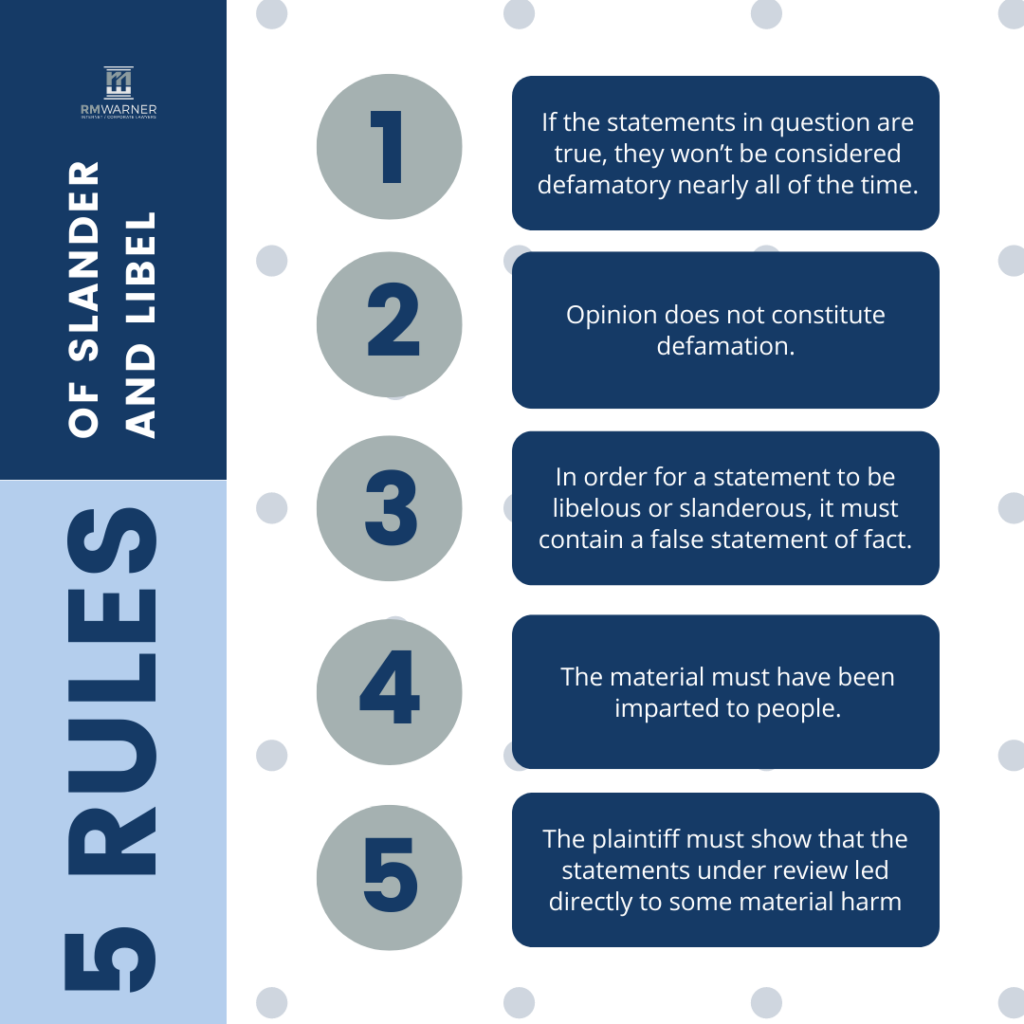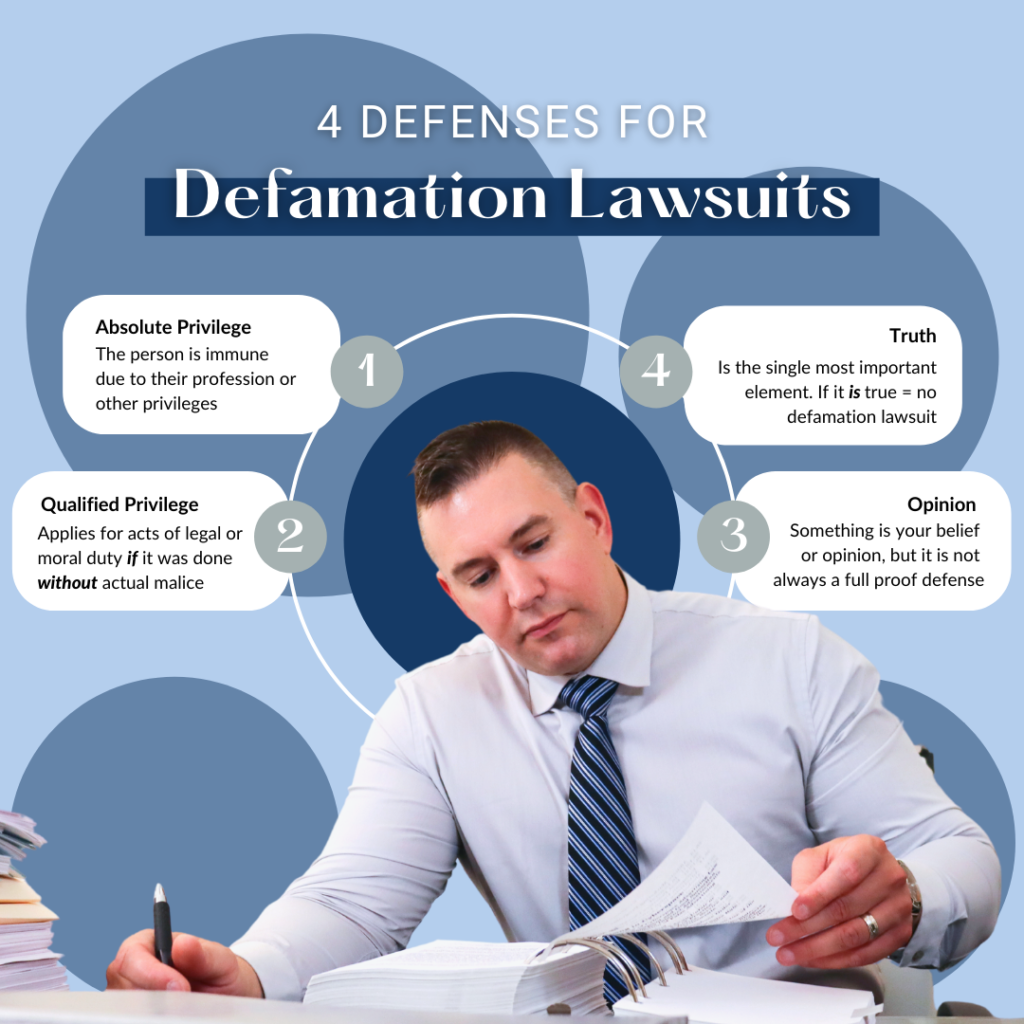Defamation on Social Media: What Can You Do About It?
Defamation on Social Media: What Can You Do About It?

Social media platforms have provided an opportunity for the voiceless to be heard, for friends and family to stay connected, and for us to glean and share information. Unfortunately, these platforms have also created an environment where online defamation thrives. Online defamation on social media affords users accessibility and anonymity, thereby making it easier for offenders to go unpunished.
Does this mean that victims of online defamation will never get justice? Are there glimmers of hope for victims in this grand era of social media? What defenses are available to those facing a defamation lawsuit? Below we explore what you can do if you are on either side of a social media defamation case.
What Can You Do if You’re a Victim of Online Defamation?
In the eyes of the law, social media publishing is viewed in the same light as traditional media as it pertains to defamation. Thankfully, victims of online defamation can fight back with the help of an internet defamation lawyer. Before you file a defamation lawsuit, you must do the following.
Determine If You Were Defamed
Your internet defamation lawyer will assess your situation to determine if you have an online defamation case. A statement qualifies as defamatory if:
- Someone other than the defamer and you viewed, read, or heard the statement.
- It’s false. Even hurtful and mean comments and posts are not considered defamatory if they are true.
- Your reputation suffered a major blow.
- The person who made the statement didn’t have the privilege or right to do so.
Identify the Defamer
Your defamation lawsuit might be an open and shut case if the defamer used an account that reflects their true identity, an American address (especially if it’s in the same state as the victim), and other pertinent details. However, in many instances, individuals hide behind burner accounts such as “finstas” (fake Instagram accounts) to make defamatory statements. Fortunately, you can ask the court to issue an order that requires the administrator of a page, blog, or website to disclose the identity of the defamer. The court could also issue a subpoena against the host site, which will require them to reveal the IP address of the author of the defamatory post or comment. Subsequently, a second subpoena will force the internet service provider (ISP) to provide the defamer’s name, address, and other details.
Keep the Evidence
Give yourself a fighting chance by keeping a record of the potentially defamatory material. It is a good idea to take screenshots of posts and capture video and audio clips before the poster removes them. Evidence is crucial for a successful defamation lawsuit, especially if the defendant denies posting false and damaging statements.
What to Do if You’re Accused of Online Defamation?
There are several potential defenses to a defamation lawsuit. These are:
A defamation lawyer can help explore the defenses that could be used in your case.
If you are without legal defense, you should delete your statement and immediately post an apology to the victim. This may reduce the likelihood of a lawsuit if the victim knows you are sincere. If a defamation lawsuit has already been filed, a sincere apology might convince the victim to drop the matter.
When to Consult an Internet Defamation Lawyer
You will need to consult an internet defamation lawyer as soon as possible, whether you are a victim or have been accused of online defamation.
If you wish to discuss your case with an internet defamation lawyer, contact us at RM Warner Law. Our experienced attorneys are well-equipped to handle your case.
For more information on defamation law, give us a call today , or you can also request a consultation online with one of our experienced internet defamation lawyers.
Similar like this
You also might be interested in
How to Remove Defamatory Content from the Internet: Legal Options Explained
In today’s digital world, defamatory content can spread quickly online, [...]
What’s the Difference Between Libel and Slander? A Legal Breakdown
A false statement can spread quickly and damage someone’s reputation, [...]
How a Cyber Harassment Lawyer Can Help You Fight Online Abuse
The internet has changed the way we communicate, but it [...]
What To Do If You Appear on ‘Are We Dating the Same Guy’
How ‘Are We Dating the Same Guy’ Started Women have [...]







